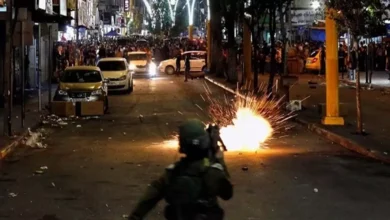Over 2,400 Dead Since January, 350 Lynched in 117 Days: Gang Violence Burns Haiti
The UN said Friday that hundreds of individuals were slain in lynchings by vigilante mobs among the more than 2,400 people who have died in Haiti since the beginning of 2023 as a result of severe gang violence.
The death toll comes after riots this week in Port-au-Prince, the capital of Haiti, left 30 locals dead and more than a dozen injured.
“At least 2,439 people have been killed and another 902 injured between January 1 and August 15 of this year,” UN rights office spokesperson Ravina Shamdasani told reporters in Geneva.
Additionally, she said, “951 people have been kidnapped” in the same time frame.
She also cautioned that as the rage grew, a surge in well-known justice movements and self-defense organizations was adding gasoline to the fire.
“More than 350 people have been lynched by locals and vigilante groups since April 24 up until mid-August,” she added, adding that 310 of them were accused gang members and one was a police officer.
The others were people from the general public.
An initial death toll from the assaults, which included the burning of homes in Port-au-Prince’s Carrefour-Feuilles neighborhood and the deaths of two police officers, was reported to AFP by the National Human Rights Defense Network.
The neighborhood serves as a key location for the gangs, who rule over 80% of the city. Authorities said that more than 5,000 individuals had left their houses.
Kidnappings for ransom, carjackings, rapes, and armed thefts are examples of violent crimes.
The severe savagery of the violence being perpetrated upon the populace and its effects on their human rights have been highlighted by reports from Haiti this week, according to Shamdasani.
Volker Turk, the UN’s head of human rights, urged for swift action in response to a request for a multinational force from outside the UN to be dispatched to Haiti “to assist the Haitian police in addressing the grave security situation and restoring the rule of law.”
Turk said that “the suffering of the Haitian people must be lessened” in addition to their human rights being preserved.
Kenya made the announcement that it was prepared to command a multinational force and send 1,000 officers “to help train and assist the Haitian police restore normalcy in the country” by the end of July.
Years of intertwined political, security, and economic challenges have plagued Haiti.
The situation has drastically deteriorated after President Jovenel Moise was assassinated in 2021, with gangs gaining a stronger foothold.
The people has been “left to fend for itself,” according to the director of the Haitian National Human Rights Defense Network.
Pierre Esperance criticized the “highest level connivance” with the criminal gangs and said that the “national police is dysfunctional and is facing leadership problems.”
He noted that the situation cannot be resolved “without addressing the problems of governance, the absence of the rule of law, impunity, and political instability.” The Haitian police, he continued, “cannot solve the problem of insecurity because it is part of insecurity.”







